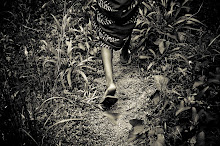The 2008 version of the “American Dream” is not rooted in true hope. It is often nothing more than humanistic, self-generated optimism. For it to be hope, it would have to be something we have not yet seen (Romans 8:24 hope that is seen is no hope at all), and if you ask most people if we have seen “the American Dream” yet, they would say, “sure”, and then talk about a rich person they know. Although wealth is never in and of itself an evil, it’s expression in the form of the “American Dream” has been reduced to nothing more than an idol of self-sufficiency. Thus the goal of most Americans is to need nothing, and in particular no one, outside of themselves to gain anything that they desire. This is not the true “American Dream”, and is far from a gospel-centered perspective on life.
Cornell West states, “ I do worry at times that our culture confuses mature hope with naïve audacity. It is important to remember that the blues conception of hope is in no way identical with the optimism of the American Dream. Martin Luther King Jr.’s dream was not the American Dream. It was rooted in the American Dream- it incorporated the need to work hard, defer gratification, and aspire to be the best. But it was also a rejection of crass materialism, hedonism, and narcissism.”
Sadly if you were to ask most Americans what they hope for in the future, they’re hopes would be inexplicably linked to materialism (possessions), hedonism (pleasure), and narcissism (self). The hope the gospel gives us, and that was evident in the fabric of the formation of the United States, is one not of narcissism, but of self-sacrifice and denial. Such terms are not sexy in a world that promotes that you can change the world around you without being changed yourself, first.
Our Declaration of Independence reads, “Prudence, indeed, will dictate that Governments long established should not be changed for light and transient causes; and accordingly all experience hath shewn that mankind are more disposed to suffer, while evils are sufferable than to right themselves by abolishing the forms to which they are accustomed. But when a long train of abuses and usurpations, pursuing invariably the same Object evinces a design to reduce them under absolute Despotism, it is their right, it is their duty, to throw off such Government, and to provide new Guards for their future security”
The absolute despotism we find ourselves under is not the government of our country, but the ruler of self, sitting on the throne of our hearts. What needs to be thrown off is my flesh and self. The gospel gives us the opportunity to move off the throne of our lives, and it replaces us with Christ’s peace. (Colossians 3:15- Let the peace of Christ rule in your hearts, since as members of one body you were called to peace.) It is our allegiance to self, that makes us “disposed to suffer“ rather than “abolishing the forms” to which we have become “accustomed”. It is our allegiance to our comfort that keeps us from living in hope. It is easier to just suffer with “how it is” than to be apart of changing the tide.
America was founded on love for others and greater concern for all mankind. The gospel displays a love that is defined by the laying down of ones life for a friend (John 15:13). Our culture has reduced love to pornography, and sacrifice to a sexy “go-green” mentality. But real change, change that comes from “mature” hope is not sexy. It’s deadly. And the first death is your own. If we were all honest with ourselves, the problem is not out there somewhere, it’s inside us. I am the problem. That’s why hope is necessary, and optimism is powerless. We need something outside ourselves to see this become reality. That’s where Jesus comes in.
Subscribe to:
Post Comments (Atom)

1 comment:
Hope
Emily Dickinson
Hope is the thing with feathers
That perches in the soul,
And sings the tune--without the words,
And never stops at all,
And sweetest in the gale is heard;
And sore must be the storm
That could abash the little bird
That kept so many warm.
I've heard it in the chillest land,
And on the strangest sea;
Yet, never, in extremity,
It asked a crumb of me.
Post a Comment